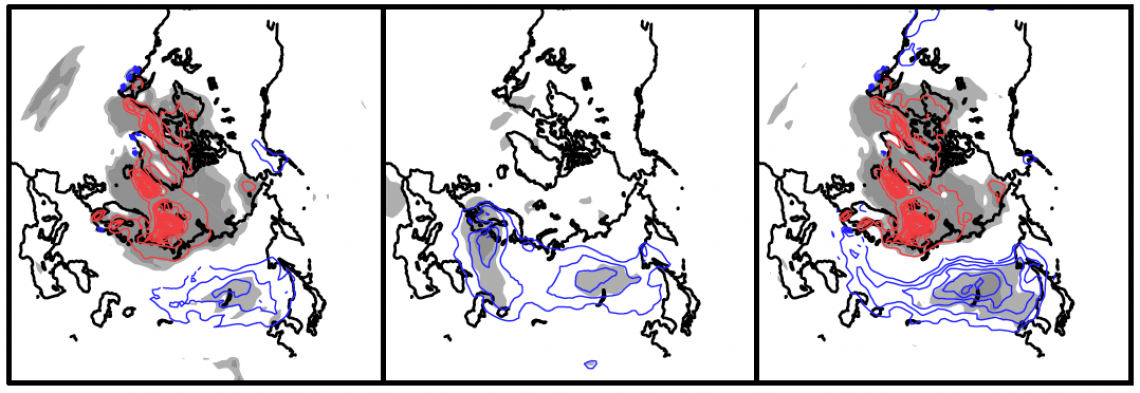Sea ice loss in the Arctic is known to cause cold waves in the mid-latitude Northern Hemisphere including in North America, Europe and East Asia. In the study, the team found the memory effect in the Eurasian Continent amplifies the cooling by nearly twofold.
This finding was made possible by a novel method the team developed based on simulations on climate variation triggered by sea ice loss in the Arctic under the global warming. The simulations can quantitatively evaluate the memory effects generated via soil temperatures and snow cover in the land area.
In previous studies, observational evidence has shown strong connections between decreasing sea ice in the warming Arctic and increasing instances in recent years of cold waves in the mid-latitude Northern Hemisphere. However, little was known as to how land processes contribute to the climate pattern.
In the current study published in Nature Communications, the research team suggests the mechanism behind the memory effect on land. Cold waves triggered by sea ice melt in the Arctic cools the entire Eurasian Continent, leading to more snow cover. Large snow cover tends to delay snowmelt in spring, preventing solar radiation from raising soil surface temperatures. These cooling anomalies over the Eurasian Continent are memorized in the soil temperatures. The memorized anomalies in the soil temperatures which are not heavily influenced by summer atmospheric conditions, will remain until autumn, advancing the timing of snowfalls in early winter. Snow cover reflects solar radiation, preventing ground surface areas from warming and thus leading to the early arrival of winter and eventually cold waves.
Contacts:
Tetsu Nakamura, Ph.D.
Faculty of Environmental Earth Science
Hokkaido University
Email: nakamura.tetsu[at]ees.hokudai.ac.jp
Professor Emeritus Koji Yamazaki
Faculty of Environmental Earth Science
Hokkaido University
Email: yamazaki[at]ees.hokudai.ac.jp
Associate Professor Tomonori Sato
Faculty of Environmental Earth Science
Hokkaido University
Email: t_sato[at]ees.hokudai.ac.jp
Naoki Namba (Media Officer)
Institute for International Collaboration
Hokkaido University
Tel: +81-11-706-2185
Email: en-press[at]general.hokudai.ac.jp
The memory effect on the Eurasian Continent amplifies cooling triggered by sea ice loss in the Arctic. Illustrations show simulated winter (December–February) temperatures near the ground (red= higher temperature, blue= lower temperature). From left to right, the panels show the response of temperatures to sea ice loss, to memory effects of land processes, and the total responses that combine the first two factors.
Koji Yamazaki (left), Tetsu Nakamura (center), and Tomonori Sato (right ) of Hokkaido University.





